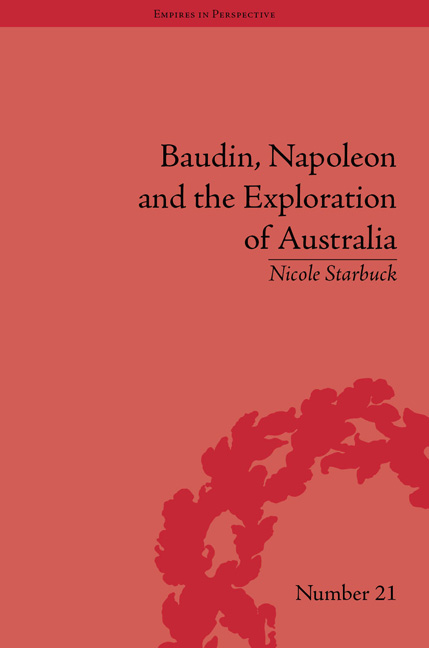Book contents
- Frontmatter
- CONTENTS
- Acknowledgements
- List of Figures
- Introduction: Voyaging out of the Enlightenment
- 1 Between Revolution and Empire: France and its Australian Voyage in 1800
- 2 ‘I Should Wish … to Establish a Few Tents on Shore’: The Port Jackson Stay
- 3 Disciplining Passions: French Naval-Voyagers at Anchor
- 4 The French and the British: A Diplomatic Relationship
- 5 Liberty, Equality and ‘Civilization’: Observations of Colonial Aborigines
- 6 Swans, Frogs and Rum: Natural History in an ‘Unnatural’ Space
- 7 Baudin's ‘New Expedition’
- 8 Epilogue: Voyaging into the Nineteenth Century
- Notes
- Works Cited
- Index
3 - Disciplining Passions: French Naval-Voyagers at Anchor
- Frontmatter
- CONTENTS
- Acknowledgements
- List of Figures
- Introduction: Voyaging out of the Enlightenment
- 1 Between Revolution and Empire: France and its Australian Voyage in 1800
- 2 ‘I Should Wish … to Establish a Few Tents on Shore’: The Port Jackson Stay
- 3 Disciplining Passions: French Naval-Voyagers at Anchor
- 4 The French and the British: A Diplomatic Relationship
- 5 Liberty, Equality and ‘Civilization’: Observations of Colonial Aborigines
- 6 Swans, Frogs and Rum: Natural History in an ‘Unnatural’ Space
- 7 Baudin's ‘New Expedition’
- 8 Epilogue: Voyaging into the Nineteenth Century
- Notes
- Works Cited
- Index
Summary
Stopovers in port always brought ambitions to the fore. Opportunities arose when the ship was moored and the voyage on hold. This was when the captain announced promotions and, sometimes, demotions; on occasion, he would order a rebellious marine to disembark and await the next ship back to Europe. The minds of his officers and sailors thus turned inevitably to thoughts of advancement or escape, authority or freedom, futures in discovery or combat. And, just as inevitably, on deck, the competing and mismatched combinations caused both collaboration and tension. Expeditions are notorious for the tense relations that typically pervaded their cramped shipboard worlds, but, in port, these tensions were considerably heightened. They were fuelled by the anticipation of staff changes, certainly, but also by changes to routine, responsibilities and the extent and use of space aboard the ship, as well as by access to the facilities and society on shore. Although the business of the expedition continued to demand attention, the busyness slowed, and the cultural assumptions and ideals of home – which, at sea, had been somewhat subordinated to naval culture – rose more distinctly to the surface. The ship in port, as Greg Dening highlights, was an ambivalent or liminal space. But each port was different, each was – as Dening may have termed it – a different ‘theatre’, and thus each port inspired different concerns, aspirations and behaviours. At Port Jackson, Governor King referred to Baudin's officers as ‘citizens of the world’, but they were also French naval officers visiting a British colony. This particular theatre would highlight concerns about personal ambition, patriotic concepts of French masculinity, honour and glory, as well as relations of dominance on deck and at the governor's table.
This would seem to have been a potentially fraught scenario; particularly given that, as a rule, the longer an expedition remained in port the harder it became for the captain to maintain order, that is, to maintain the shape and drive of the expedition. During a five-month sojourn in Tahiti, in 1789, Captain William Bligh lost control entirely.
- Type
- Chapter
- Information
- Baudin, Napoleon and the Exploration of Australia , pp. 45 - 64Publisher: Pickering & ChattoFirst published in: 2014



